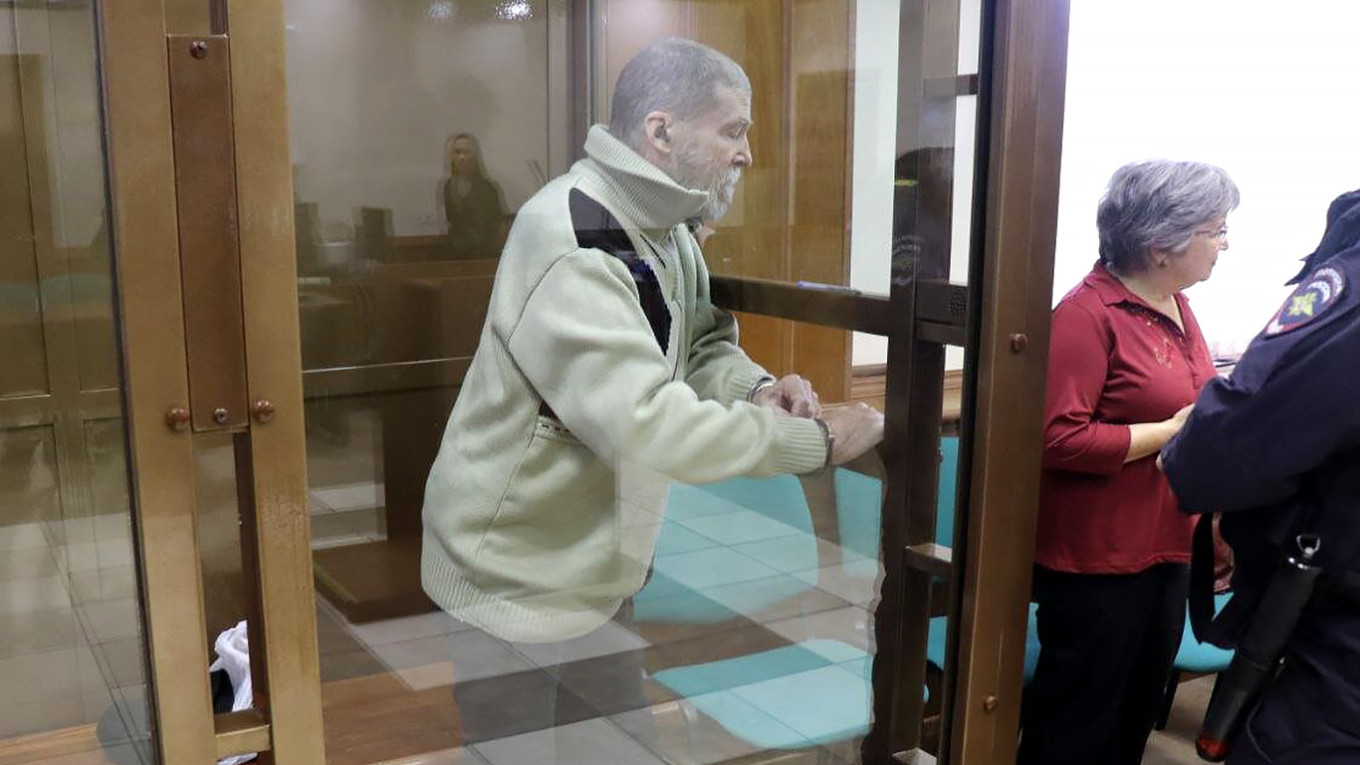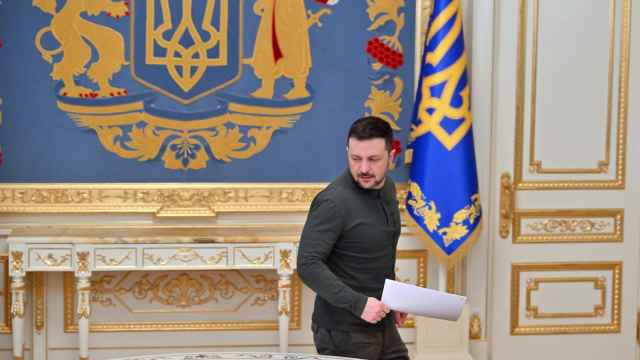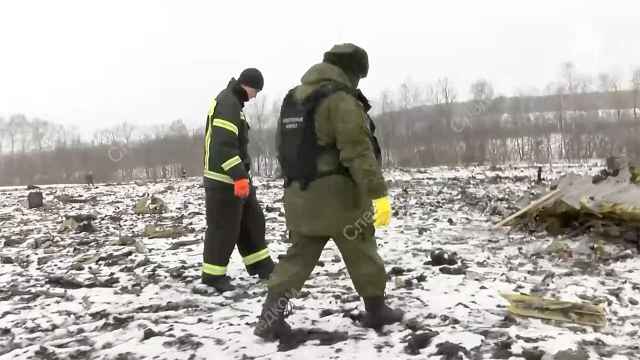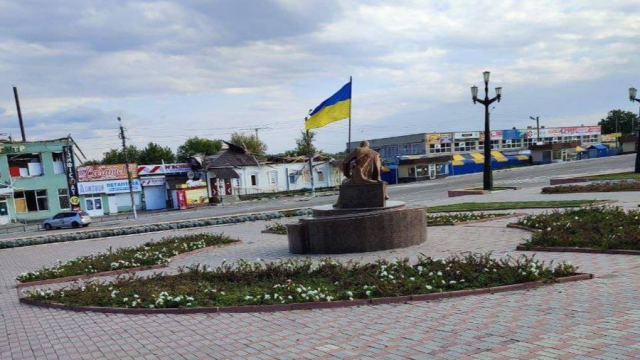When Ukrainian soldier Ihor Shyshko described his two years of detention in Russia alongside 72-year-old U.S. citizen Stephen Hubbard, three words came to mind: torture, humiliation and hunger.
After being held incommunicado for two and a half years, Hubbard suddenly appeared in a Moscow court last month where he was sentenced in a closed trial to nearly seven years behind bars for allegedly fighting for Ukraine.
He was captured in April 2022, just weeks after Russia launched the full-scale invasion of Ukraine. Washington says it has only "limited" information about his case since Russian authorities refused to share any details.
On Sept. 27, just 10 days before the verdict was handed down, Russia announced for the first time that it had been holding Hubbard, who appeared pale and frail in the court.
Shyshko, meanwhile, was taken prisoner in May 2022 and released in an exchange earlier this year. AFP first met him while he was undergoing psychological treatment in Ukraine in August, before Moscow revealed that Hubbard was in their custody.
In separate interviews with AFP in September and October, Shyshko recounted his detention alongside Hubbard in two Russian prisons.
The two men were held in Novozybkov in the Bryansk region in western Russia from September 2022 to May 2023, sometimes in neighboring cells. They were then held in the Pakino penal colony no. 7 in the Vladimir region, some 270 kilometers (168 miles) east of Moscow, where they were cellmates for a time.
The presence of a foreigner among Ukrainian prisoners of war was unusual, Shyshko told AFP.
"It wasn't very clear why he was there," said Shyshko, a 41-year-old with dark circles under his eyes and sunken cheeks who says he spent 801 days in total in captivity.
Shyshko said Hubbard was subjected to the same treatment as the Ukrainians: beaten, humiliated and starved by their guards, adding that he personally witnessed abuse against Hubbard and endured the same himself.
"They beat him all the time, like the rest of us," Shyshko said of the prison guards' treatment of Hubbard during an interview with AFP in the eastern Ukrainian city of Kharkiv. "They hit him with sticks and truncheons and kicked him. They attacked him with dogs."
"They made him run, they didn't feed him, they made him crawl through the corridors," he added.
The guards at Novozybkov "deliberately" hit inmates' genitals, Shyshko said, and forced inmates, including Hubbard, to simulate sexual acts with other inmates to humiliate them.
Shyshko said Hubbard, with whom he had some difficulty communicating in English, had confided to him that he had been tortured in Pakino by his Russian captors with electric shocks.
The released Ukrainian serviceman said torture in Russian detention was routine, showing scars on his hands and his hearing aid needed in the wake of beatings that damaged his ears.
In an October 2024 report, the United Nations accused Russia of perpetrating "widespread and systematic" torture and mistreatment of Ukrainian prisoners of war.
The Russian Foreign Ministry did not respond to requests for comment from AFP about Hubbard's detention.
Shyshko's account of the treatment he and other inmates face in detention, however, is similar to the stories told by other former prisoners.
Russian state media reported that Hubbard was taken prisoner on April 2, 2022 during the Russian occupation of Izium, a town in the northeast of Ukraine that was liberated months later.
Kremlin-funded news outlets, citing testimony from the court, said Hubbard had moved to Izium in 2014 to live with his Ukrainian partner, a journey that the American recounted to his Ukrainian fellow prisoner.
Moscow had accused Hubbard of joining a Ukrainian territorial defense battalion at the start of the Kremlin's invasion and that he was paid at least $1,000 a month to fight.
Authorities in Kyiv told AFP they had found no record of Hubbard having been among Ukrainian military units.
"We haven't found him on our lists," said Oleksiy Dmytrashkivsky, head of the communications department of the Ukrainian Territorial Defence Forces' command and spokesman for the Ukrainian command in occupied parts of Russia's Kursk region.
Russian media reported that Hubbard had pleaded guilty, but Shyshko described him as "just a civilian." He was unable to run and would have been far too weak to carry a weapon, according to Shyshko.
"You see an old man in such poor health, how could you possibly see him as a soldier?"
Shyshko said that Hubbard had told him that he was stopped by Russian soldiers at a checkpoint in Izium. He added that the Russian soldiers saw that Hubbard was carrying cash and detained him.
Hunger was one of the abuses suffered by the detainees, Shyshko said, claiming the detainees there were deliberately malnourished and punitively denied meals.
Hubbard "always had a different opinion [from the guards] and did not do what they told him," Shyshko said.
Shyshko claimed to have heard prison guards voicing concerns about the potential for a scandal emerging in the event of the death of a U.S. citizen in Russian custody.
The Ukrainian serviceman has been reunited with his wife and three children but lives with severe psychological and physical repercussions of his time spent in Russian detention.
He said he would prefer for Hubbard to be able to return home and tell his own story.
Shyshko told AFP he worries that Hubbard, who had lost a lot of weight, would not be able to "hold out" for much longer, either physically or mentally.
He is already "between life and death," Shyshko said.
A Message from The Moscow Times:
Dear readers,
We are facing unprecedented challenges. Russia's Prosecutor General's Office has designated The Moscow Times as an "undesirable" organization, criminalizing our work and putting our staff at risk of prosecution. This follows our earlier unjust labeling as a "foreign agent."
These actions are direct attempts to silence independent journalism in Russia. The authorities claim our work "discredits the decisions of the Russian leadership." We see things differently: we strive to provide accurate, unbiased reporting on Russia.
We, the journalists of The Moscow Times, refuse to be silenced. But to continue our work, we need your help.
Your support, no matter how small, makes a world of difference. If you can, please support us monthly starting from just $2. It's quick to set up, and every contribution makes a significant impact.
By supporting The Moscow Times, you're defending open, independent journalism in the face of repression. Thank you for standing with us.
Remind me later.






